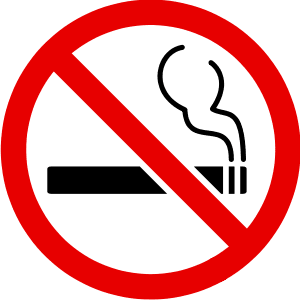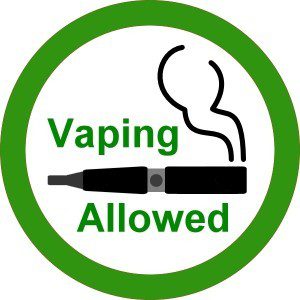by Laura Pokrzywa
If you aren’t familiar with “vaping” yet, you probably will be soon. “Vaping” is the term used to describe the somewhat controversial use of electronic cigarettes. The term was coined because these battery-operated devises do not create smoke, like traditional cigarettes, but emit a vapor. Vaping has become so popular, new “vape-friendly” establishments are popping up all over, either selling related products or providing a place for vaping.
This comes at a time when some employers are 
Ironically, the popularity of these devises has been fueled by the desire of many to find a healthier alternative to smoking. But the jury is still out regarding just how healthy this practice is. Electronic cigarettes use battery-generated heat to turn nicotine, flavor and other chemicals into a vapor that is inhaled by the user. Though many of these devices are made with nicotine that is not derived from tobacco, the Federal Drug Administration (FDA) would not consider your “vaping” employee tobacco free. The FDA has not tested e-cigarettes and has not approved manufacturers’ claims that these devices aid in the cessation of smoking. Therefore, it does not include them on its list of approved smoking-cessation devices. The FDA warns that consumers currently have no way of knowing:
• whether e-cigarettes are safe for their intended use,
• what types or concentrations of potentially harmful chemicals are found in these products, or
• how much nicotine they are inhaling when they use these products.
Currently, three states (North Dakota, New Jersey and Utah) have specifically restricted the use of E-cigarettes in 100% smoke-free venues. Eleven other states prohibit the use of e-cigarettes in limited venues such as public school properties, public commuter systems, or on State Agency grounds. Other state laws, though not as specifically worded, might be interpreted to include e-cigarettes in smoking bans. Additionally, the number of municipalities and counties that have enacted bans against e-cigarettes continues to rise.
In light of the uncertainty regarding the safety of these products, and the increasing legislative action, many businesses have banned e-cigarettes altogether, along with regular cigarettes.
Other nicotine-replacement devices, such as patches, gum, nasal sprays, lozenges and some inhalers have been thoroughly tested and are FDA-approved and regulated. Employers should consider employees using these methods eligible for the “tobacco free” benefits.
For help with other Human Resource issues, please send your questions to hrhelpline@eastcoastrm.com. If you’d like email notification of all blog updates, just add your address to the box and click the subscribe button to the right.
Disclaimer: The information provided on this web site is for informational purposes only and not for the purpose of providing legal advice. Use of and access to this Web site do not create an attorney-client relationship between East Coast Risk Management or our employment law attorney and the user or browser.


